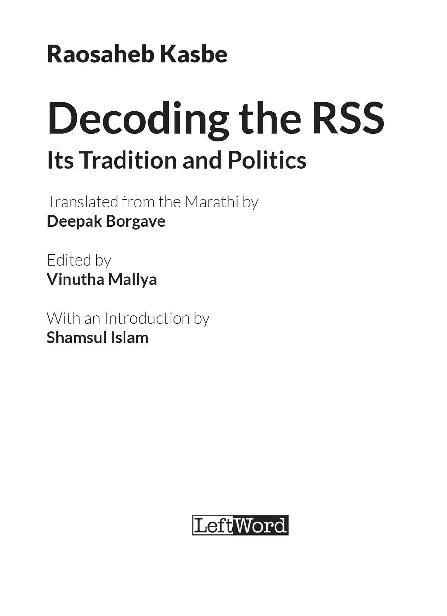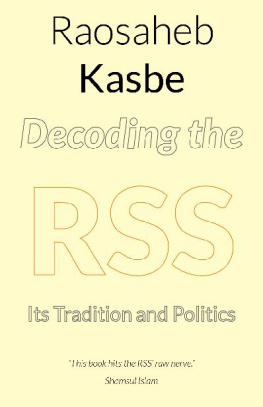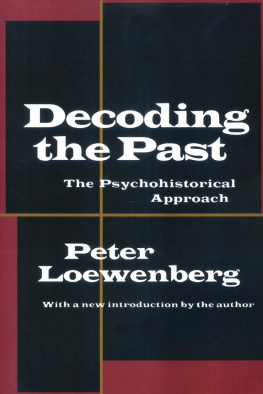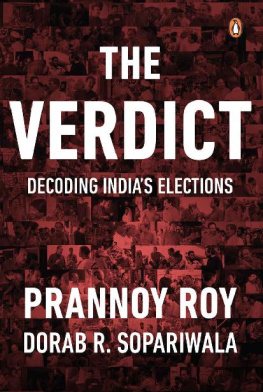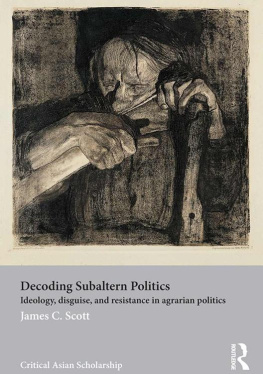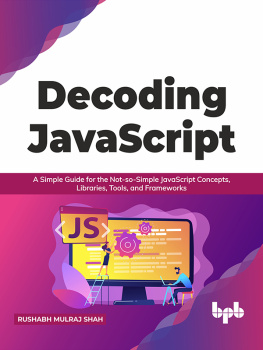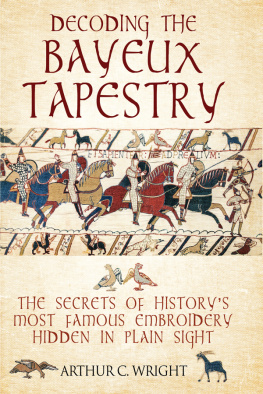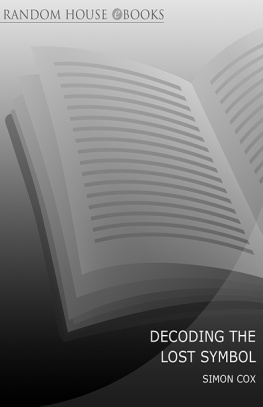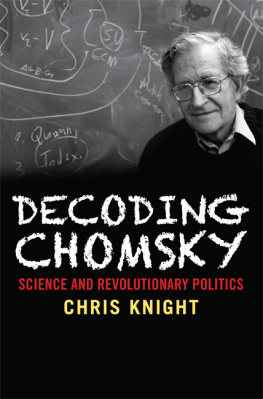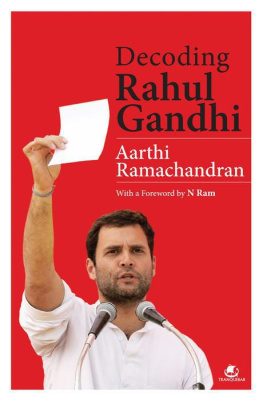Decoding the RSS
First published in July 2019
E-book published in September 2019
LeftWord Books
2254/2A Shadi Khampur
New Ranjit Nagar
New Delhi 110008
INDIA
LeftWord Books is the publishing division of Naya Rasta Publishers Pvt. Ltd.
Kusum Kasbe, 2019
First published in Marathi as Zot
by Janbodh Prakashan, Pune, 1978
leftword.com
In memory of
COMRADE GOVIND PANSARE,
DR. NARENDRA DABHOLKAR,
DR. M.M. KALBURGI,
and
GAURI LANKESH,
who laid their lives
fighting against
fundamentalism
CONTENTS
by Shamsul Islam
SHAMSUL ISLAM
Decoding the RSS is the English translation of Raosaheb Kasbes well-known Marathi book Zot (Searchlight) on the Rashtriya Swayamsevak Sangh (RSS). Raosaheb Kasbe is a renowned political scientist, a leading scholar of Dalit movements and Hindutva politics in India. Over the decades, he has watched closely the RSS spreading its tentacles in Maharashtra, as well as the rest of India. Zot is an incisive study of the most important ideological treatise of the RSS, Bunch of Thoughts (1966, titled Vichardhan in Marathi), a collection of the writings, speeches and interviews of Madhav Sadashiv Golwalkar. Golwalkar is the preeminent ideologue of the RSS, and was its second, and longest-serving, sarsanghchalak (supreme leader), from 1940 to 1973. The book, the bible for RSS cadres, presents the ideological case for converting the democratic-secular Indian polity into a Hindu rashtra , where the Manusmruti would be law and the varna system would be strictly adhered to. To explain the RSSs worldview, Kasbe quotes extensively from this book, so that no misrepresentation could be claimed. The RSS does not stand for an egalitarian India but a Hindu-sthan (Hindu nation) under Brahminical hegemony, harking back to the times of the Peshwas.
Professor Kasbes concern about RSS, the most prominent flag-bearer of Hindutva politics, was natural, as it came into being in opposition to the resurgence of Dalit politics in Maharashtra. It may be interesting to note that Hindutva politics originated mainly in areasnow part of Maharashtrawhere Brahminism was challenged in a sustained manner by Shudra icons like Tukaram, Namdev, Shahuji Maharaj, Jotiba Phule, Savitribai Phule and Dr. B.R. Ambedkar.
Zot appeared in 1978 when the RSS was trying to capture the Janata Party, which had won the election after the Emergency was lifted in 1977. Zot became an instant hit with political activists. It exposes the doublespeak of the RSS and the potent threat it poses to Indian democracy. This irrefutable exposure created immediate ripples, especially among RSS zealots who, instead of countering Kasbes arguments, chose the fascist method of burning copies of the book at Pune while the Janata Partys session was on. Clearly, Zot had hit a raw nerve.
Kasbe shows how the RSS countered the united freedom struggle by declaring that Hindus and Muslims, and followers of all other religions, constituted separate nations, and became the most vocal votary of the two-nation theory. It further asserted that since India was primordially a Hindu nation, all other nations, especially Muslims, must accept the hegemony of Hindus. For the RSS, the main enemy was not the colonial masters, but the united freedom struggle itself, since it militated against the idea of the Hindu rashtra .
HINDU RASHTRA VERSUS
COMPOSITE INDIAN NATIONALISM
It is not a coincidence that the RSS was born when the united freedom struggle was trying to overcome the communal divide. Those who were killed at Jallianwala Bagh in Amritsar on April 13, 1919, included 220 Hindus, 94 Sikhs and 61 Muslims. Of the 19 peasants hanged after the Chauri Chaura incident on February 5, 1922, in the Gorakhpur district of the United Provinces, six were Muslims. Another milestone in the Indian freedom struggle, the robbery of the British governments treasury at Kakori on August 9, 1925, was conceived by Ram Prasad Bismil and Ashfaqullah Khan. They were hanged on the same dayDecember 19, 1927.
The RSS was founded in 1925 by Keshav Baliram Hedgewar (18891940), who remained its sarsanghchalak till his death. Hedgewar was initially a Congressman. His reason for leaving the Congress in the early 1920s has been described in an RSS publication as follows:
It is clear that Gandhiji worked constantly with one eye on HinduMuslim unity.... But Doctorji [Hedgewar] sensed danger in that move. In fact, he did not even relish the newfangled slogan of HinduMuslim unity.
Hedgewar thirsted for communal conflict. His biography tells us that when sometimes bandwallahs hesitated to play music in front of mosques, Hedgewar himself would take over the drums and rouse the dormant manliness of the Hindus.
The RSS, under both Hedgewar and Golwalkar, not only took no part in the freedom struggle, but actively discouraged those who wanted to. Golwalkar writes,
There is another reason for the need of always remaining involved in routine work. There is some unrest in the mind due to the situation developing in the country from time to time. There was such unrest in 1942. Before that there was the movement in 193031. At that time many other people had gone to Doctorji. This delegation requested Doctorji that this movement will give independence and Sangh should not lag behind. At that time, when a gentleman told Doctorji that he was ready to go to jail, Doctorji said: Definitely go. But who will take care of your family then? That gentleman replied, I have sufficiently arranged resources not only to run the family expenses for two years but also to pay fines according to the requirements. Then Doctorji told him: If you have fully arranged for the resources then come out to work for the Sangh for two years. After returning home that gentleman neither went to jail nor came out to work for the Sangh.
The RSS remained loyal to the British till the end. Echoing the colonial states stand on the Quit India Movement, Golwalkar says, After 1942, people often started thinking that there was no need to think of the law.
In fact, Golwalkar was not embarrassed at the RSSs loyalty to the British. In a speech in Indore in 1960, he said,
Many people worked with the inspiration to free the country by throwing the British out.... In fact there was no need to have this much inspiration. We should remember that in our pledge we have talked of the freedom of the country through defending religion and culture. There is no mention of departure of the British in that.
He justified the principle Might is Right with recourse to the idea of social Darwinism, which is not only scientifically bogus, but is also discredited for its connection with Nazism and other forms of racism. In a speech on June 8, 1942, when the Indian masses were facing massive repression, Golwalkar declared,
It is futile to blame the strong for the injustice done to the weak. Sangh does not want to waste its invaluable time in abusing or criticising others. If we know that large fish eat the smaller ones, it is outright madness to blame the big fish. Law of nature whether good or bad is true all the time. This rule does not change by terming it unjust.
Golwalkar inherited this inimical attitude to the freedom struggle from his mentor and founder of the RSS, Hedgewar. The official biography of Hedgewar has the following telling statement: After establishing Sangh[,] Doctor Saheb in his speeches used to talk only of Hindu organisation. Direct comment on Government used to be nil.
